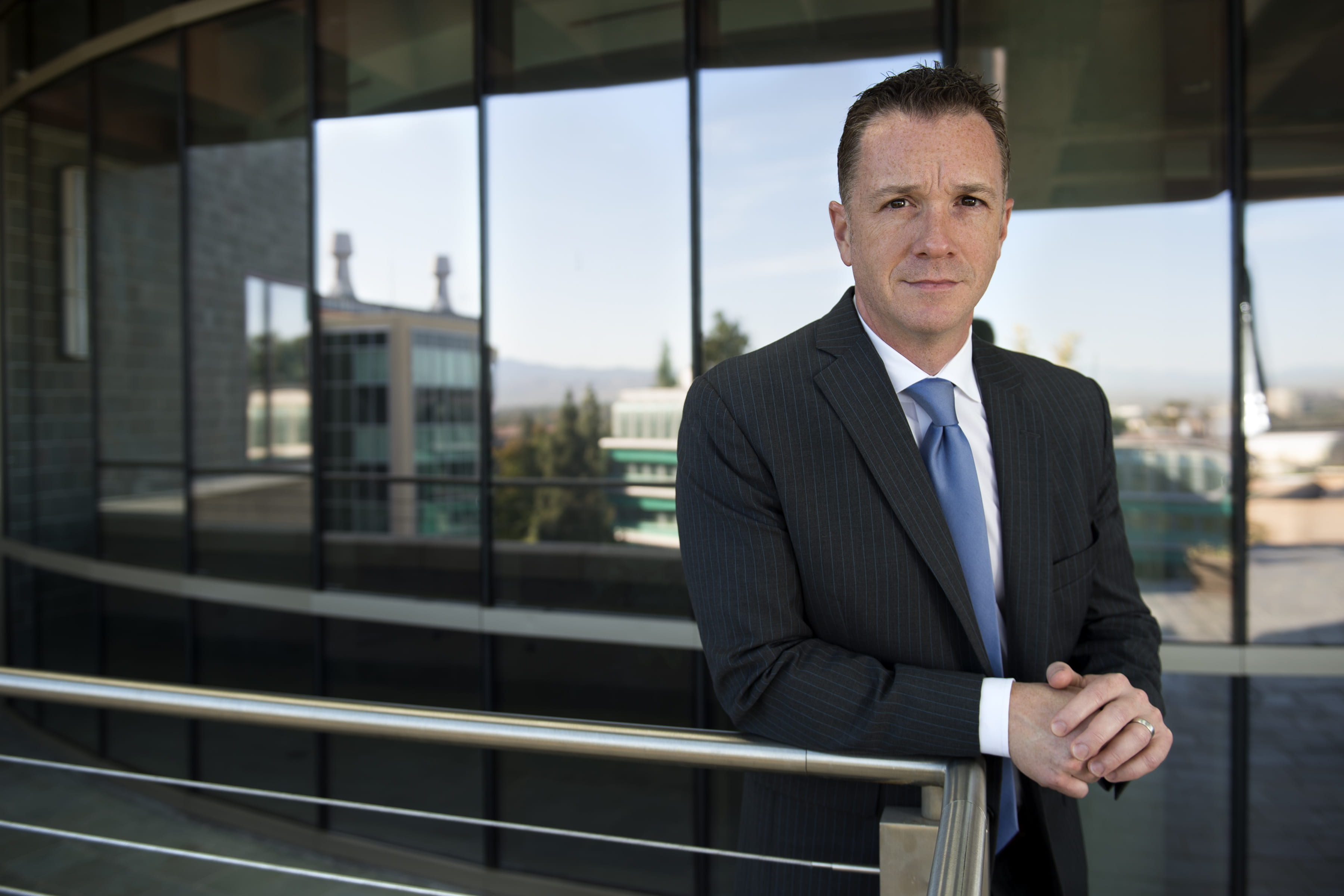Addressing the daily dilemmas of dementia care
Alzheimer’s conference co-hosted by UCI will tackle such sensitive subjects as intimacy, elder abuse, driving risks and end-of-life options

Every 66 seconds, someone is diagnosed with Alzheimer’s disease. Frank LaFerla, dean of UCI’s Francisco J. Ayala School of Biological Sciences, says that with more than 76 million aging baby boomers in the U.S., the memory-impairing condition is “the most important medical problem of our time – and one that’s going to intensify greatly over the next 20 years.”
While research on preventing and treating the disease is robust, the myriad day-to-day challenges for people with Alzheimer’s and their caregivers are often ignored. UCI’s Institute for Memory Impairments and Neurological Disorders is seeking to change that.
On Friday, Sept. 22, UCI MIND and Alzheimer’s Orange County will co-host the 28th Annual Southern California Alzheimer’s Disease Research Conference, themed “The Elephant in the Room: Sensitive Subjects in Dementia Care.” It will highlight “taboo” topics that impact the daily lives of Alzheimer’s patients and their relatives, including elder abuse, end-of-life issues, sex and intimacy, and driving risks.
“Traditionally, we’ve focused on cutting-edge research in prevention and early diagnosis,” says Chelsea Cox, associate director of education at UCI MIND, “but this year we decided to focus on the pervasive psychosocial challenges that affect families and are too often left unaddressed.”
The conference is designed to provide information and management strategies and facilitate discussion among those with Alzheimer’s, their kin and their caretakers, who may be hesitant to broach difficult subjects with stigmas attached. More than 400 healthcare professionals, students, researchers and caregivers are expected to attend.
Among the presenters will be Joshua Grill, UCI associate professor of psychiatry & human behavior, who co-directs UCI MIND with LaFerla.
“This year, we’re focusing on making life easier for those who have already been diagnosed with dementia, in ways that recognize their daily struggles,” Grill says. “We want to build confidence around starting a dialogue, finding support and increasing consultations for these challenges.”
LaFerla, who has been researching Alzheimer’s for nearly 30 years, is scheduled to open the conference alongside Grill. The impact of the disease is “absolutely astounding,” he says: One in 20 people over 65 are affected by Alzheimer’s disease, and that number grows exponentially with age. After 85, 40 to 50 percent of people suffer from it.
“The most obvious issue for people impacted by Alzheimer’s is loss of memory, but physicians and caregivers often overlook other aspects that can make all the difference in someone’s life,” LaFerla says. “There are no simple answers to end-of-life decisions, intimacy matters or any of the other topics we’re concerned with, but so many people are struggling with these questions that it’s necessary to open up a dialogue.”
He hopes the conference will bring attention not only to these subjects, but to the national role UCI plays in researching Alzheimer’s. The campus houses one of just 32 National Institutes of Health-designated Alzheimer’s Disease Research Centers in the U.S. – and the only one in Orange County.
“The way we’ll solve this problem is through research, and UCI is one of the leading research centers in the country,” LaFerla says. “We’re eager to showcase the work we’ve been doing and to continue working toward better treatments and solutions for this disease.”